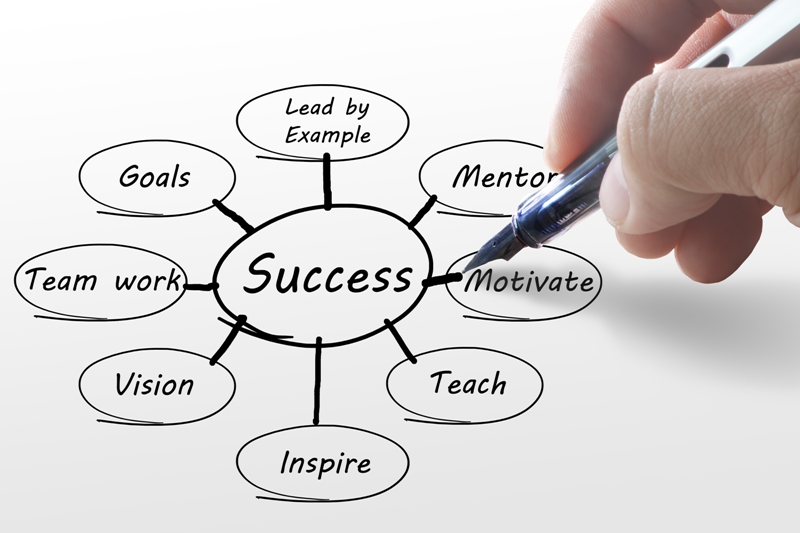Tips and Tricks for Virtual Sales Pitches

While the concept of a virtual sales pitch is hardly a new one, the fact of the matter is, they are proving to be more important and necessary in 2020 than ever before. According to The Pew Research Center, only about 5% of people in sales had access to telecommuting as recently as 2019. This means that 95% of people in sales are trying to do virtual sales for the first time.
With such an unprecedented number of people suddenly trying to master a completely new (to them) format of sales pitch, there is no exact formula to follow for success. Each business or product is unique, as are salespeople’s relationships with their clients.
There are, however, some general tips and tricks, to guide how you build and deliver your virtual sales pitch, which are helpful to just about anybody jumping into this kind of workstream for the first time.
Do Your Research
Virtual sales pitches can require more preparation than other kinds of pitches, so it’s especially important to do the requisite research. Aside from your own product’s research, this also includes research on the client you’ll be pitching to. Who have they worked with in the past? What is the culture of their business like? Knowing the answers to these questions before logging on can save you a lot of guesswork once you’re on camera.
Also, make sure to research and familiarize yourself with whatever software you’ll be using to make the pitch. Some programs have steeper learning curves than others, and it’s best not to ever have to do damage control live, if possible.
Keep Your Presentation Simple
One of the easiest ways to simplify your presentation is to use as little text as possible. Keep your slides concise and to the point, avoiding any paragraph length passages for your potential clients to squint at on their laptops. Remember, many of them are working from home, too, and don’t have the benefit of conference table sized monitors.
Humanize Your Approach, through Discourse
By creating space in your presentation for dialogue with your clients and actually listening to their needs, hopes, fears, and desires, you’ll be in a better position to build a relationship with them and provide them with the services they need.
In fact, according to Mark Roberge of Harvard, empathy is the most important aspect of sales. He explains in his Harvard Business Review classes that, when you use empathy to ask the right questions, “a sequence of open-ended questions that [help to] develop that buyer perspective—their needs, their challenges, the timing around [the deal], their buying authority—become best practices.”
Ask questions throughout your presentation, engage with your potential clients, and make sure to read the room.
Practice Makes Perfect
Be sure to practice your presentation, exactly as you’ll be doing for your clients, until you feel truly comfortable with the pacing and the technology. Recording yourself doing this is additionally helpful, as it is easier to make self-corrections from watching playback from a practice video than it is to do in real time.
Plan on Technical Difficulties
One of the biggest things that can confound a virtual presentation are application notifications going off in the background. Turning email, messaging, and all other app notifications OFF can spare you a lot of distracting noises during your time in front of the camera.
No matter how familiar you are with the platform you’re using to deliver your presentation, there’s liable to be some technology glitch that you didn’t plan for. It happens. Wireless can get spotty, as can internet service, more generally, and without warning. Try to troubleshoot as much as possible beforehand, so that you can avoid any of the foreseeable ones.
Additional Resources:
https://www.pewresearch.org/fact-tank/2020/03/20/before-the-coronavirus-telework-was-an-optional-benefit-mostly-for-the-affluent-few/
https://www.forbes.com/sites/heathermorgan/2018/02/26/the-key-to-asking-better-sales-questions-is-empathy-according-to-harvards-mark-roberge/#6946f5851558






 When you hear someone could sell sawdust to a lumber mill, it means they are a good salesperson, but it’s almost an insult. It seems like trickery to sell someone things they don’t need. Effectiveness doesn’t necessarily rely on smooth talking or tricks.
When you hear someone could sell sawdust to a lumber mill, it means they are a good salesperson, but it’s almost an insult. It seems like trickery to sell someone things they don’t need. Effectiveness doesn’t necessarily rely on smooth talking or tricks.

 Professional sales coaching differs from sales training. While training occurs in a classroom setting with a group of reps, coaching involves an individualized, one-on-one relationship. Sales training happens over a matter of weeks; sales coaching takes place over months.
Professional sales coaching differs from sales training. While training occurs in a classroom setting with a group of reps, coaching involves an individualized, one-on-one relationship. Sales training happens over a matter of weeks; sales coaching takes place over months.
 4. Memory
4. Memory

 • They constantly analyze the sales cycle. Many modern sales professionals play a role in every step of a sales process, from marketing to retention activities. Break down your cycle into individual steps, then measure your effectiveness at each step. Do you lose leads during the nurturing phase, or do you have trouble closing the deal? If you know your weaknesses, you can take meaningful steps to improve.
• They constantly analyze the sales cycle. Many modern sales professionals play a role in every step of a sales process, from marketing to retention activities. Break down your cycle into individual steps, then measure your effectiveness at each step. Do you lose leads during the nurturing phase, or do you have trouble closing the deal? If you know your weaknesses, you can take meaningful steps to improve.
 Ask the right questions. Whether you work in a retail environment known for quick sales or a relationship-driven sales environment, the right questions will improve your chance of making a sale. Instead of asking straightforward questions that are slightly elevated versions of “how are you?” and “what do you need?” try to engage the customer in your environment. Do you work on a car lot that happens to have one of the original vehicles from a famous movie? Find what makes your product, location, or service different so you can start a conversation instead of sticking to a script.
Ask the right questions. Whether you work in a retail environment known for quick sales or a relationship-driven sales environment, the right questions will improve your chance of making a sale. Instead of asking straightforward questions that are slightly elevated versions of “how are you?” and “what do you need?” try to engage the customer in your environment. Do you work on a car lot that happens to have one of the original vehicles from a famous movie? Find what makes your product, location, or service different so you can start a conversation instead of sticking to a script.
 Even the best salespeople hit a slump now and then. It might seem for them that suddenly none of their methods work and no products are moving, which leads to discouragement and burnout. Slumps often happen when you get in a rut, doing the same thing over and over and getting the same results or no results at all.
Even the best salespeople hit a slump now and then. It might seem for them that suddenly none of their methods work and no products are moving, which leads to discouragement and burnout. Slumps often happen when you get in a rut, doing the same thing over and over and getting the same results or no results at all. Working with a sales career coach can have major benefits, such as generating greater revenues and building a larger network. To get the most out of your sales career coach investment, you need to understand the ins and outs of career coaching and what your job is as a student.
Working with a sales career coach can have major benefits, such as generating greater revenues and building a larger network. To get the most out of your sales career coach investment, you need to understand the ins and outs of career coaching and what your job is as a student. If you don’t have a specific goal in mind while working with a sales career coach, that’s okay. You can still come prepared by thinking of questions that will point you in the right direction, such as “How do I become a better salesperson?” Your career coach will have a plethora of resources to help you nail down what your greatest strengths and weaknesses are and construct a lesson plan moving forward. Clarifying your needs and articulating them in a way that will get results is imperative for using your time efficiently.
If you don’t have a specific goal in mind while working with a sales career coach, that’s okay. You can still come prepared by thinking of questions that will point you in the right direction, such as “How do I become a better salesperson?” Your career coach will have a plethora of resources to help you nail down what your greatest strengths and weaknesses are and construct a lesson plan moving forward. Clarifying your needs and articulating them in a way that will get results is imperative for using your time efficiently.